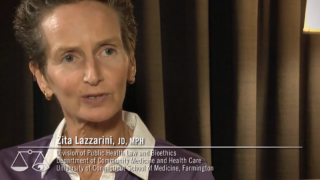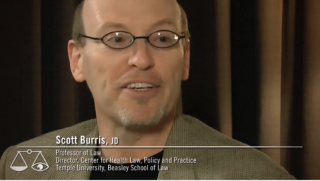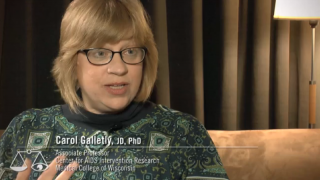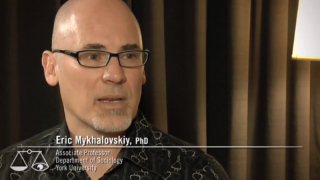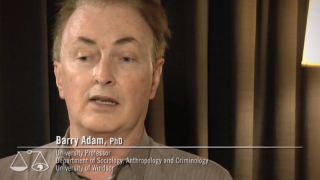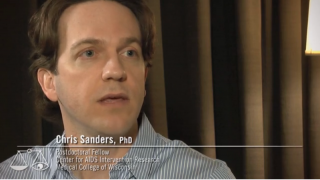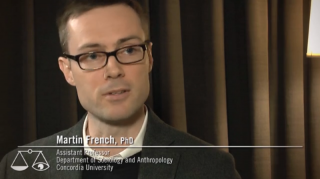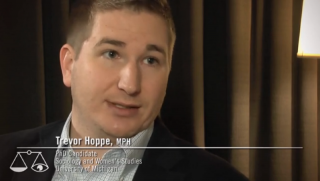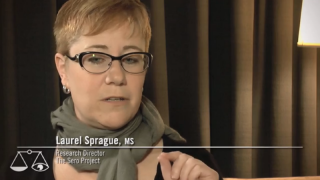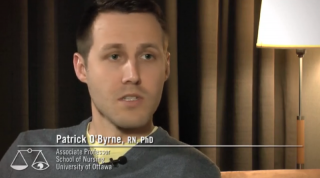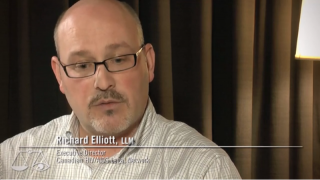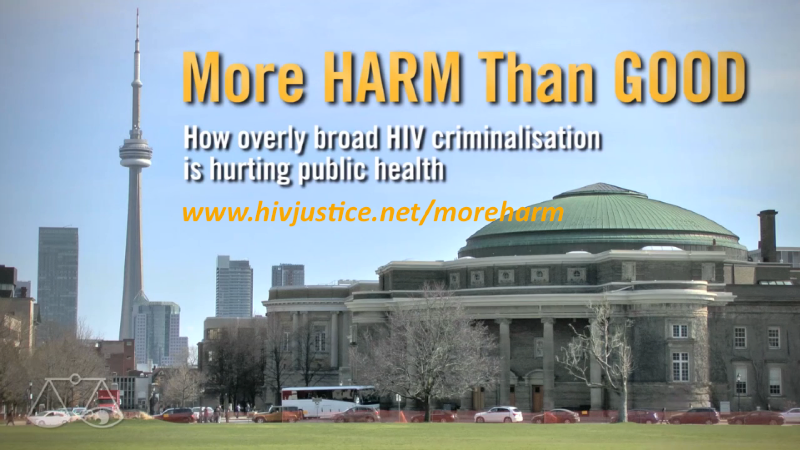In recent years, the criminalization of HIV transmission, exposure and non-disclosure has become a hot topic among those working within the global AIDS milieu. Social scientists have become increasingly attentive to the complex and varied consequences and impacts of HIV criminalization.
Experts agree: overly broad HIV criminalisation is doing more harm than good
The HIV Justice Network has today released a new documentary, More HARM Than GOOD: How overly broad HIV criminalisation is hurting public health which had its world premiere at the US Conference on AIDS in New Orleans on September 10th. We hope it will be useful for both education and advocacy. To watch the video and to see all the studies cited in the documentary, visit www.hivjustice.net/moreharm. Download the video from our Vimeo channel: www.vimeo.com/hivjustice/moreharm
In many countries around the world, people with HIV are being made criminally liable for HIV prevention.
Despite strong recommendations against this overly broad use of the criminal law by UNAIDS and the Global Commission on HIV and the Law, the latest report from the Global Network of People Living with HIV and the HIV Justice Network highlights that new laws continue to be proposed and enacted, and more prosecutions are taking place than ever before.
The most commonly cited rationale of the criminal law is to deter morally unacceptable behaviour through fear of punishment. Scott Burris and Zita Lazzarini were the first to explore whether US laws that criminalised HIV non-disclosure had the impact that the lawmakers intended.
Zita Lazzarini: We found that whether you lived in a state with a law or without a law had absolutely no effect.
Scott Burris: Criminal law is generally a very blunt tool, anyway. And if you think about it, punishment and fear rarely brings out the best in people, when they’re making individual behaviour decisions. And certainly, when it comes to sex, criminal law has a very limited record of getting people to change their behaviour.
Carol Galletly has added much to the body of evidence on the impact of laws that criminalise HIV non-disclosure. Working with a number of colleagues, she published a number of studies, including this one in 2006 and this one in 2012 examining whether or not these laws are having the impact they were intended to have.
Carol Galletly: We thought of every single way these laws could possibly be effective. Do HIV-positive individuals reduce number of sex partners? Do they choose only positive sex partners more than people who don’t know about the law? Are they abstinent more? Do they practice safer sex more? Do they engage in oral sex or less risky activities? So we looked at all these things and the data just stacked up – there were no significant differences. The strongest predictor of disclosure was actually comfort with disclosure. So what I concluded was, if you really want people to disclose, then what you should probably do is increase their comfort, do interventions, do whatever. And don’t do laws that could jeopardize people disclosing.
Most laws and prosecutions focus on disclosure – in other words, whether or not the person with diagnosed HIV told their sexual partner before having sex. Whilst this may be the right thing to do, does this actually benefit HIV prevention? Eric Mykhalovskiy organised an international meeting on HIV prevention and criminal law in Toronto in April 2013 precisely because his own research found that criminalising HIV non-disclosure was having the opposite effect of what was intended.
Eric Mykhalovskiy: We see how significant now disclosure, or questions around disclosure, are within HIV prevention counselling, to the point that there is too much of a focus. You know, Barry Adam and others have emphasised repeatedly that disclosure is not an effective HIV prevention mechanism. And yet what seems to have happened is that the criminalisation of HIV non-disclosure has placed disclosure at the centre of people’s concerns around HIV prevention. And that is, I think, a serious challenge for people who are enlisted with the responsibility of trying to ensure that HIV transmission is lessened.
Barry Adam is Senior Scientist and Director of Prevention Research at the Ontario HIV Treatment Network and lead author of How criminalization is affecting people living with HIV in Ontario.
Barry Adam: Disclosure has become a bit of a red herring I think, in terms of HIV prevention because HIV prevention can and has for a long time happened without disclosure, anyways. To require disclosure doesn’t necessarily help. Sometimes, it could even hinder the process by creating a false sense of security among those who think that, if disclosure doesn’t happen, that their partner is negative. The social science evidence shows that, when people often get into the disclosure area, it’s in order to give themselves permission to have unprotected sex! People actually do have to know what their HIV status is in order to disclose it. And, there is a good deal of science these days that suggests that, it’s people who don’t know, who are newly infected, who are actually doing a lot of the infection.
Studies by Eric Mykhalovskiy, Chris Sanders and Martin French (the latter two are currently undertaking research studies and have not yet published their findings) have uncovered an unanticipated negative impact of HIV criminalisation on the healthcare workers who test and treat people with HIV, complicating their practice as public health professionals. They found that the criminal law is creating a chill, closing down discussions about HIV on both sides. (An in-depth report on the impact of HIV criminalisation on nursing practice can be found here.)
Chris Sanders: Criminalisation has complicated post-test counseling. Nurses are finding that clients shut down, they become very unwilling to speak openly about their sexual behaviour and they don’t want to share contact information because they’re worried that it might come back if they’re later charged with non-disclosure. And so, it makes nurses’ work more difficult. And that can impact HIV prevention as public health relies on contact tracing to be able to do quite a bit of their prevention work.
Martin French: I’m looking at this in Canada and the United States, and in spite of the fact that there are different approaches to public health I’m seeing some similar effects in terms of the anxiety that a number of providers are feeling about the issue of criminalisation as they counsel patients with respect to disclosure.
Trevor Hoppe found another, more sinister impact on healthcare workers. During his PhD research he discovered that some heath officials in Michigan’s public health system appeared to be invested in prosecuting people with HIV for not disclosing their status, resulting in some potentially problematic outcomes for HIV prevention.
Trevor Hoppe: This is the first piece of evidence that some health departments may be playing a role in facilitating criminal prosecutions. I can understand why people living in some of these communities would think twice before talking to health officials about their lives openly and honestly, given what health officials reported to me.
One of the most worrying aspects of HIV criminalisation is the additional disincentive it plays in a person’s willingness to take an HIV test: a significant number of new infections come from people who are undiagnosed. But testing is not just about knowing one’s HIV status to modify behaviour, it’s also the gateway to accessing HIV treatment and care.
New guidelines from the World Health Organization now highlight that HIV treatment works not only to keep people alive and well for a lifetime, but also prevents new infections by reducing HIV to undetectable levels. Where there is no virus, there can be no transmission. Since treatment is also prevention, then not testing or accessing treatment, hurts not only the individual but also the communities in which they live, harming the broader public health.
Laurel Sprague is the Research Director of the Sero Project, and oversaw their 2012 national HIV criminalisation survey.
Laurel Sprague: We asked people whether they thought it was not reasonable, somewhat reasonable or very reasonable to avoid getting an HIV test, or to avoid accessing treatment if someone tested positive because of HIV criminalisation. Those numbers should be zero. We shouldn’t have legal reasons for people not to get tested. We shouldn’t have a legal reason for people not to access care. And half of our respondents said that it was reasonable to avoid HIV testing because of HIV criminalisation and 42% of our respondents said it was reasonable, somewhat, or very reasonable to avoid getting HIV care once you’ve tested positive.
Patrick O’ Byrne is lead author of the 2013 review article, HIV criminal prosecutions and public health: an examination of the empirical research. He has also studied the impact of HIV prosecutions on gay men and documented how fear of HIV criminalisation has impacted their sexual and testing practices.
Patrick O’Byrne: Nobody – guys who were negative, guys who were positive – could make a distinction between the public health department and the police. It was a single institution. And this is problematic, right? How can you provide health care services when people think that you are a police agency? How do you provide care when people won’t access it? The laws have effectively rendered your HIV prevention health professionals useless.
Richard Elliott is the Executive Director of the Canadian HIV/AIDS Legal Network, and was an intervenor when the Supreme Court of Canada heard HIV criminalisation cases in 1998 and 2012.
Richard Elliott: How can it not have an impact on people and their decision as to whether or not to find out their HIV status, if you risk becoming a criminal. It may not at the end of the day dissuade a large number of people, but I think, it does dissuade a significant number of people and it probably, based on the evidence we have, dissuades some of those who are most likely to actually benefit from learning their HIV status, and all of the potential benefits to them, and others that may flow from that. So, why would we want to create an additional barrier, and why would we want to create a barrier to people actually seeking help from the helping professions? Because if we conscript those helping professions, to basically, become agents of law enforcement, that undermines their ability to help people, and that actually undermines the health of all of us.
Criminalisation is a divisive issue with strong opinions often informed by morality and a desire to achieve justice by punishing perceived wrongdoing. However, understanding the impact of HIV criminalisation on public health is critical to making informed policy decisions.
The 2013 UNAIDS guidance note, Ending overly-broad criminalisation of HIV non-disclosure, exposure and transmission: Critical scientific, medical and legal considerations aims to ensure that any application of criminal law in the context of HIV achieves justice and does not jeopardise public health objectives.
The guidance can be downloaded here.
More HARM Than GOOD [Trailer] (HJN, 2013)
Feature: Why overly broad HIV criminalisation is doing more harm than good
In many countries around the world, people with HIV are being made criminally liable for HIV prevention.
Despite strong recommendations against this overly broad use of the criminal law by UNAIDS and the Global Commission on HIV and the Law, the latest report from the Global Network of People Living with HIV and the HIV Justice Network highlights that new laws continue to be proposed and enacted, and more prosecutions are taking place than ever before.
The most commonly cited rationale of the criminal law is to deter morally unacceptable behaviour through fear of punishment. Scott Burris and Zita Lazzarini were the first to explore whether US laws that criminalised HIV non-disclosure had the impact that the lawmakers intended.
Zita Lazzarini: We found that whether you lived in a state with a law or without a law had absolutely no effect.
Scott Burris: Criminal law is generally a very blunt tool, anyway. And if you think about it, punishment and fear rarely brings out the best in people, when they’re making individual behaviour decisions. And certainly, when it comes to sex, criminal law has a very limited record of getting people to change their behaviour.
Carol Galletly has added much to the body of evidence on the impact of laws that criminalise HIV non-disclosure. Working with a number of colleagues, she published a number of studies, including this one in 2006 and this one in 2012 examining whether or not these laws are having the impact they were intended to have.
Carol Galletly: We thought of every single way these laws could possibly be effective. Do HIV-positive individuals reduce number of sex partners? Do they choose only positive sex partners more than people who don’t know about the law? Are they abstinent more? Do they practice safer sex more? Do they engage in oral sex or less risky activities? So we looked at all these things and the data just stacked up – there were no significant differences. The strongest predictor of disclosure was actually comfort with disclosure. So what I concluded was, if you really want people to disclose, then what you should probably do is increase their comfort, do interventions, do whatever. And don’t do laws that could jeopardize people disclosing.
Most laws and prosecutions focus on disclosure – in other words, whether or not the person with diagnosed HIV told their sexual partner before having sex. Whilst this may be the right thing to do, does this actually benefit HIV prevention? Eric Mykhalovskiy organised the workshop precisely because his own research found that criminalising non-disclosure was having the opposite effect of what was intended.
Eric Mykhalovskiy: We see how significant now disclosure, or questions around disclosure, are within HIV prevention counselling, to the point that there is too much of a focus. You know, Barry Adam and others have emphasised repeatedly that disclosure is not an effective HIV prevention mechanism. And yet what seems to have happened is that the criminalisation of HIV non-disclosure has placed disclosure at the centre of people’s concerns around HIV prevention. And that is, I think, a serious challenge for people who are enlisted with the responsibility of trying to ensure that HIV transmission is lessened.
Barry Adam is Senior Scientist and Director of Prevention Research at the Ontario HIV Treatment Network and lead author of How criminalization is affecting people living with HIV in Ontario.
Barry Adam: Disclosure has become a bit of a red herring I think, in terms of HIV prevention because HIV prevention can and has for a long time happened without disclosure, anyways. To require disclosure doesn’t necessarily help. Sometimes, it could even hinder the process by creating a false sense of security among those who think that, if disclosure doesn’t happen, that their partner is negative. The social science evidence shows that, when people often get into the disclosure area, it’s in order to give themselves permission to have unprotected sex! People actually do have to know what their HIV status is in order to disclose it. And, there is a good deal of science these days that suggests that, it’s people who don’t know, who are newly infected, who are actually doing a lot of the infection.
Studies by Eric Mykhalovskiy, Chris Sanders and Martin French (the latter two are currently undertaking research studies and have not yet published their findings) have uncovered an unanticipated negative impact of HIV criminalisation on the healthcare workers who test and treat people with HIV, complicating their practice as public health professionals. They found that the criminal law is creating a chill, closing down discussions about HIV on both sides. (An in-depth report on the impact of HIV criminalisation on nursing practice can be found here.)
Chris Sanders: Criminalisation has complicated post-test counseling. Nurses are finding that clients shut down, they become very unwilling to speak openly about their sexual behaviour and they don’t want to share contact information because they’re worried that it might come back if they’re later charged with non-disclosure. And so, it makes nurses’ work more difficult. And that can impact HIV prevention as public health relies on contact tracing to be able to do quite a bit of their prevention work.
Martin French: I’m looking at this in Canada and the United States, and in spite of the fact that there are different approaches to public health I’m seeing some similar effects in terms of the anxiety that a number of providers are feeling about the issue of criminalisation as they counsel patients with respect to disclosure.
Trevor Hoppe found another, more sinister impact on healthcare workers. During his PhD research he discovered that some heath officials in Michigan’s public health system appeared to be invested in prosecuting people with HIV for not disclosing their status, resulting in some potentially problematic outcomes for HIV prevention.
Trevor Hoppe: This is the first piece of evidence that some health departments may be playing a role in facilitating criminal prosecutions. I can understand why people living in some of these communities would think twice before talking to health officials about their lives openly and honestly, given what health officials reported to me.
One of the most worrying aspects of HIV criminalisation is the additional disincentive it plays in a person’s willingness to take an HIV test: a significant number of new infections come from people who are undiagnosed. But testing is not just about knowing one’s HIV status to modify behaviour, it’s also the gateway to accessing HIV treatment and care.
New guidelines from the World Health Organization now highlight that HIV treatment works not only to keep people alive and well for a lifetime, but also prevents new infections by reducing HIV to undetectable levels. Where there is no virus, there can be no transmission. Since treatment is also prevention, then not testing or accessing treatment, hurts not only the individual but also the communities in which they live, harming the broader public health.
Laurel Sprague is the Research Director of the Sero Project, and oversaw their 2012 national HIV criminalisation survey.
Laurel Sprague: We asked people whether they thought it was not reasonable, somewhat reasonable or very reasonable to avoid getting an HIV test, or to avoid accessing treatment if someone tested positive because of HIV criminalisation. Those numbers should be zero. We shouldn’t have legal reasons for people not to get tested. We shouldn’t have a legal reason for people not to access care. And half of our respondents said that it was reasonable to avoid HIV testing because of HIV criminalisation and 42% of our respondents said it was reasonable, somewhat, or very reasonable to avoid getting HIV care once you’ve tested positive.
Patrick O’ Byrne is lead author of the 2013 review article, HIV criminal prosecutions and public health: an examination of the empirical research. He has also studied the impact of HIV prosecutions on gay men and documented how fear of HIV criminalisation has impacted their sexual and testing practices.
Patrick O’Byrne: Nobody – guys who were negative, guys who were positive – could make a distinction between the public health department and the police. It was a single institution. And this is problematic, right? How can you provide health care services when people think that you are a police agency? How do you provide care when people won’t access it? The laws have effectively rendered your HIV prevention health professionals useless.
Richard Elliott is the Executive Director of the Canadian HIV/AIDS Legal Network, and was an intervenor when the Supreme Court of Canada heard HIV criminalisation cases in 1998 and 2012.
Richard Elliott: How can it not have an impact on people and their decision as to whether or not to find out their HIV status, if you risk becoming a criminal. It may not at the end of the day dissuade a large number of people, but I think, it does dissuade a significant number of people and it probably, based on the evidence we have, dissuades some of those who are most likely to actually benefit from learning their HIV status, and all of the potential benefits to them, and others that may flow from that. So, why would we want to create an additional barrier, and why would we want to create a barrier to people actually seeking help from the helping professions? Because if we conscript those helping professions, to basically, become agents of law enforcement, that undermines their ability to help people, and that actually undermines the health of all of us.
Criminalisation is a divisive issue with strong opinions often informed by morality and a desire to achieve justice by punishing perceived wrongdoing. However, understanding the impact of HIV criminalisation on public health is critical to making informed policy decisions.
The 2013 UNAIDS guidance note, Ending overly-broad criminalisation of HIV non-disclosure, exposure and transmission: Critical scientific, medical and legal considerations aims to ensure that any application of criminal law in the context of HIV achieves justice and does not jeopardise public health objectives.
The guidance can be downloaded here.
The HIV Justice Network has produced an accompanying video, ‘More HARM Than GOOD’ that we hope will be useful for both education and advocacy. Watch and/or download the video on our Vimeo channel: www.vimeo.com/hivjustice/moreharm
More HARM Than GOOD
How overly broad HIV criminalisation is hurting public health
(29 min, HJN, Canada, 2013)
This educational and advocacy video from the HIV Justice Network, filmed at an international meeting on HIV prevention and criminal law in Toronto in April 2013, features interviews with social scientistis, researchers and legal and public health experts from the U.S. and Canada who have studied the public health impact of HIV criminalisation.
Featuring Barry Adam, Scott Burris, Richard Elliott, Martin French, Carol Galletly, Trevor Hoppe, Zita Lazzarini, Eric Mykhalovskiy, Patrick O’Byrne, Chris Sanders and Laurel Sprague
- Written and presented by Edwin J Bernard
- Filmed, directed and produced by Nicholas Feustel
- Further information at: hivjustice.net/moreharm
- Produced by: georgetownmedia.de
US: 'Condoms in prison' debate reveals annual cost of care for a person with HIV in prison
California Health Care Services said taxpayers are paying nearly $30,000 to treat one patient with HIV/AIDS every year. That’s $28,800 for medications and $655.44 for labs. “That cost doesn’t even include clinical staff, diagnostic studies, or other costs,” said Joyce Hayhoe, Director of Legislation and Communications for California Health Care Services.
US: Sero Project and Transgender Law Center highlight the threat to transgender health created by HIV criminalisation
People living with HIV (PLHIV) who identify as transgender or third sex are more likely than any other group to feel that it is reasonable to avoid HIV testing (58%), disclosure of one’s HIV positive status to sex partners (61%) or accessing HIV treatment (48%) because of fear of HIV criminalization and distrust of the U.S. criminal justice system. The new findings from the National HIV Criminalization Survey were presented at the National Transgender Health Summit on May 15, 2013.
“These findings don’t surprise us,” said Cecilia Chung, Senior Strategist at the Oakland, California-based Transgender Law Center. “The data speaks to the long-standing history of stigmatization and discrimination of trans people, especially trans people of color, by the criminal justice system, because of either their race or their gender identity.” Chung was the first trans woman elected to chair the San Francisco Human Rights Commission, and she is currently a board member of the Global Network of People Living with HIV (GNP+).
More than 3,000 people living with and affected by HIV participated in the National HIV Criminalization Survey from June to August 2012, conducted online by the Sero Project in conjunction with Eastern Michigan University. The principal investigator, Laurel Sprague, is the Sero Project’s Research Director, Regional Coordinator of GNP+ North America, and a PhD candidate at Wayne State University in Detroit, Michigan.
Sprague noted, “Laws that criminalize non-disclosure of HIV status raise key issues about community norms, expectations of fair treatment by authorities, privacy and the increased vulnerability of certain communities.”
While the results revealed that HIV criminalization can discourage HIV testing—nearly 25% of HIV-positive respondents said that they knew one or more people who did not get tested for fear of criminal prosecution—when researchers returned to the survey results to closely examine transgender and third sex responses, they found that these particular respondents faced increased levels of vulnerability in relation to the U.S. justice system.
The majority of transgender and third sex respondents living with HIV (57%) reported that they feared false accusations of non-disclosure either a few times or frequently—a figure higher than that of any other group surveyed. Only 14% of transgender and third sex respondents living with HIV felt that a U.S. person living with HIV could get a fair court hearing if accused of non-disclosure.
When transgender and third sex respondents were asked their opinions about HIV criminalization, two out of three respondents (67%) said that non-disclosure of HIV status should not be criminalized. When asked if a sex worker living with HIV should disclose to clients, most transgender and third sex respondents (41%) said it depends on the circumstances. In fact, transgender and third sex respondents were the most likely to focus on the context (“it depends on the circumstances”) when determining whether there should be criminal charges for non-disclosure related to sex, drug use or sex work.
The transgender community’s historically fraught relationship with public health authorities, law enforcement and the criminal justice system also likely affects transgender and third sex attitudes about HIV criminalization.
Sprague shared a range of quotes from the survey to illustrate various nuanced transgender and third sex experiences and opinions regarding HIV criminalization:
• One trans woman explained why she didn’t press charges for non-disclosure: “In order to file charges, I [would have] had to disclose my rape, my [HIV] status and I would have to give up my privacy and be subjected to public scrutiny.”
• A third sex respondent said, “I think in cases of rape, incest and other power- or force-related situations, prosecutions should go forward. Otherwise, NO!”
• Another trans woman said that she didn’t press charges for non-disclosure because of the “difficulty in proving in court that he had infected me—and also accepting that we took equal risk in being intimate without protection.”
For policy makers and public health workers, the transgender and third sex responses to Sero’s National HIV Criminalization Survey should raise concern, especially the survey results that show increased barriers to HIV testing and treatment, as well as deep feelings of legal vulnerability due to HIV criminalization.
The responses highlight a critical need for access to legal education and legal services, safe and confidential locations for accessing health care, and support for spaces where transgender people living with HIV can share their experiences, provide mutual support, and work together to identify resilience strategies and advocacy priorities.
GNP+ and the HIV Justice Network release ‘Advancing HIV Justice: a progress report of achievements and challenges in global advocacy against HIV criminalisation’
A new report released today by the Global Network of People Living with HIV (GNP+) and the HIV Justice Network highlights the tireless work of advocates around the world challenging inappropriate criminal laws and prosecutions for HIV non-disclosure, potential or perceived exposure and transmission.
Advancing HIV Justice shows that advocates around the working to repeal, modernise or otherwise limit laws and policies that inappropriately regulate and punish people living with HIV have achieved considerable success. This is especially the case when policymakers or criminal justice system actors are open to learning more about scientific and medical advances in HIV prevention, treatment, care and support, and involve civil society – led by people living with HIV – to ensure that critical criminal law and human rights principles are followed.
“That is why we welcome the new, detailed guidance on limiting overly broad HIV criminalisation that was released last week by UNAIDS,” says Kevin Moody, International Coordinator and CEO of GNP+. “The guidance will help to continue advancing HIV justice, serving as a powerful new tool for people living with HIV, and those advocating on our behalf, in our work with policymakers and criminal justice system actors.”
Writing in the foreword, Susan Timberlake, Chief, Human Rights and Law Division, UNAIDS Secretariat, notes that Advancing HIV Justice “powerfully demonstrates that civil society advocacy on this issue is not only alive – it goes from strength to strength.”
In the 18-month period covered by the report (September 2011 to March 2013), significant advances were made in terms of:
- building the global evidence base in order to better understand the ‘who, what, where, when and why’ of laws and prosecutions around the world;
- generating persuasive social science that shows exactly why overly broad HIV criminalisation does more harm than good, often achieving exactly the opposite of what law- and policymakers intend in terms of public health and human rights;
- challenging inappropriate or overly broad new laws in Africa, Asia, the Caribbean, Latin America and the United States;
- advocating for law reform in Europe and the United States, including successful repeal in Denmark and modernisation of one of Switzerland’s two laws used to prosecute potential or perceived HIV exposure; and
- addressing legal processes and enforcement, including the creation of prosecutorial guidelines in Scotland.
However, the report also highlights that the road to law and policy reform is not always straightforward or easy, due not only to complex intersections of laws, policies and practices, but also because of each country’s unique social, epidemiological and cultural contexts.
“Despite the many incremental successes of the past 18 months, more work and more funding is required to strengthen advocacy capacity,” says the HIV Justice Network’s co-ordinator, Edwin J Bernard, who co-authored the report with Sally Cameron. “HIV criminalisation is a complex issue. It entails a detailed understanding of diverse aspects of the criminal justice system; collection and analysis of evidence of the scope and impact of prosecutions across local and national boundaries; articulation and argument about complex moral and ethical issues of trust, blame and responsibility; and inclusion of HIV prevention and human rights priorities. Development of strategies against HIV criminalisation relevant to each individual jurisdiction requires time, effort, and the involvement of multidisciplinary experts.”
Advancing HIV Justice: A progress report of achievements and challenges in global advocacy against HIV criminalisation is available as a 52 page pdf that can be read or downloaded at: http://www.advancing.hivjustice.net
Keeping Confidence: HIV and the criminal law from service provider perspectives (HJN, 2013) (2 of 4)
The Keeping Confidence one day conference was a free event to discuss findings from a report that we produced in conjunction with Birkbeck College. For more detailed information on the project please follow this link to the project description page: sigmaresearch.org.uk/projects/policy/project55/
Response Panel
Chaired by Dr Adam Bourne, LSHTM
Ms Ceri Evans, Senior Health Adviser, West London Centre for Sexual Health, Chelsea and Westminster Hospital
Dr Robert James, HIV Patient Representative, Lawson Unit, Brighton and Sussex University Hospitals NHS Trust
Mrs Juliet Reid, Chief Executive, Centre for All Families Positive Health (CAFPH)
Video produced by georgetownmedia.de
Keeping Confidence: HIV and the criminal law from service provider perspectives (HJN, 2013) (1 of 4)
The Keeping Confidence one day conference was a free event to discuss findings from a report that we produced in conjunction with Birkbeck College. For more detailed information on the project please follow this link to the project description page: sigmaresearch.org.uk/projects/policy/project55/
Part 1: Overview of Keeping Confidence report and recommendations
Dr Catherine Dodds, LSHTM
Prof Matthew Weait, Birkbeck College
Introduction by Matt Williams, Monument Trust
Video produced by georgetownmedia.de
